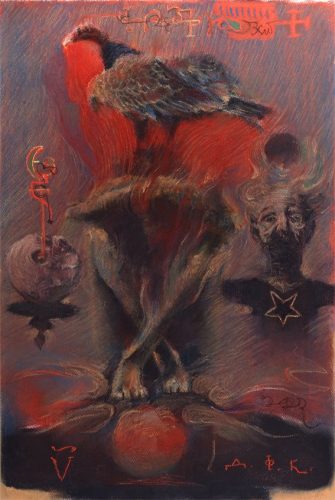
Denis Forkas – “Study For Victory”
The Font of All Human Knowledge defines “mysticism” as “the practice of religious ecstasies (religious experiences during alternate states of consciousness), together with whatever ideologies, ethics, rites, myths, legends, and magic may be related to them”. Another source defines it as “belief that union with or absorption into the Deity or the absolute, or the spiritual apprehension of knowledge inaccessible to the intellect, may be attained through contemplation and self-surrender.” Ironically (or perhaps more accurately to some), an earlier version of the same source provides a second definition after the one just quoted: “belief characterized by self-delusion or dreamy confusion of thought, especially when based on the assumption of occult qualities or mysterious agencies”.
Mysticism as a significant source of inspiration is of course not unknown in extreme metal music, but I would say it’s a rarity. The kind of metal spawned by mystical beliefs, and used by its creators either to channel the insights and transformations brought about by mystical study, practice, or feeling, or to become a vehicle itself for the transformation of the self, seems to be found mainly in small and relatively obscure corners of the underground. I don’t mean to suggest that this is any different from what one might find in any other genre of music; it might even be true that mysticism plays a larger role in extreme metal than, for example, in hip-hop or country music — but of course I wouldn’t know, because I have tunnel-vision when it comes to my listening choices.
I also hasten to add that I haven’t made a study of the presence of mysticism across the sub-genres of extreme metal — though that would be an interesting topic for someone with more time to devote to it than I have. I’m only briefly reflecting on my own experiences as a listener over the last 15 years or so, based on what happens to be bubbling to the surface of my brain this morning.
That said, mysticism seems to play a greater role in black metal than in most other metal genres. One might attribute that conclusion to the pervasiveness of Satanic symbology and lyricism in black metal, but that’s far too simplistic an explanation for this perception, in part because there’s a hell of a lot of “pretend Satanism” among black metal bands, as well as manifestations of genuine spirituality that have little or nothing to do with Luciferian occultism or the Left-Hand Path, even if some might seem to share certain principles of opposition to Christian dogma, the prominence of individual will, self-realization, or even the worship of death.
And apart from that, one can also find examples of Christian mysticism in black metal, though you have to dig pretty deep to find it — and of course many adherents to black metal would vehemently deny that music founded on Christian belief is true black metal, no matter how many tremolo-picked chords, blasting drums, or acidic screeches are to be found within the music. There’s been perhaps more attention recently devoted to the presence of Christian mysticism in black metal as a result of Panegyrist’s well-recevived debut album Hierurgy, though I don’t think even Panegyrist’s principal creator would define the music as black metal, despite certain stylistic associations with the genre.
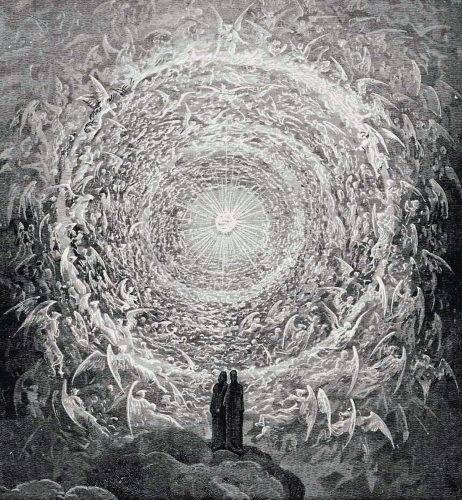
Gustave Doré – illustration for “Paradiso”
Perhaps the greater prominence of mysticism among the varying shades of black metal has something to do with the ways in which instrumentation and vocals are used in many shades of black metal; perhaps that makes it a more appealing form of expression for mystical feeling or practice — a more suitable means of expressing extreme emotional intensity than other genres. However, I’m not going to push that argument very far because extreme emotional intensity is a feature that cuts across almost all the best music in all genres of metal (that’s why I like it so much), and because a lot of spiritual music classified as black metal (usually of the kind jammed into the pigeonhole of “atmospheric black metal”) makes no use of whirring guitars or blasting drums.
Anyway, it’s food for thought. I’m just throwing out impressions and ideas rather than making arguments. You might even disagree with my sense that black metal is home to more mystical expressions than, say, death metal, thrash, doom, or sludge. You might even feel moved to provide counter-examples to my half-formed thesis, which would be welcome in the Comment section below. I’m even going to provide something of a counter-example myself, as you will soon see.
And so, with this very wordy prelude, I do have some music to recommend. In fact, the following music, which I listened to for the first time (or listened to again) over the last 24 hours is precisely what prompted the foregoing thoughts — and this music did so even though it’s not all extreme metal. Apart from the fact that all of the music seems to have been inspired by mystical spirituality, all of it evoked a kind of mystical sensation in my own mind, even though I’m one of the least mystically inclined people you could come across.
ESPÍRITO ALDEBARAN
The Portuguese black metal underground is home to a connected group of musicians (who conceal their identities) known as the Aldebaran Circle. That circle includes such bands and projects as Ordem Satânica, Trono Além Morte (whose music we premiered here), Voëmmr (whose music we premiered here), and a band whose music I included in a round-up (here) just yesterday, Occelensbrigg.
And Espírito Aldebaran is another member of that circle. Below you’ll find a stream of Espírito Aldebaran‘s 2017 demo, which seems to be the project’s only publicly released recording to date. I encountered it for the first time yesterday thanks to a link I received from Miloš, a frequent source of excellent suggestions.
The shriek of feedback that immediately greets the ears is an open and honest statement that abrasion and dissonance (in many senses of the word) will be significant features of the music. Or to use a popular term, it’s raw. It claws and scrapes and howls at the eardrums (and the mind), but it does more than that. Ritual drum booms and cymbal crashes give it a stately, almost solemn air; warping, glimmering, and rising melodic tones create a feeling of ominous wonder; an ecstatic voice (nearly clean, except for the harsh distortion that covers everything) bespeaks revelation; and when the music erupts in pandemonium, as it eventually does, everything becomes fire.
The sensation of ritual is strong in the music, and it becomes mesmerizing despite its abrasive qualities, which reach a zenith in the second track.
Bandcamp:
https://espiritoaldebaran.bandcamp.com/album/demo-i
EZOV
Ezov is a Swedish duo (from Norrköping), whose debut album Cerca Trova (which I believe is Italian for “seek and you shall find”) was released on June 24th. I won’t attempt to define the spiritual beliefs behind this music, though conclusions could be reached from reading the extensive and eloquent lyrics available on the album’s Bandcamp page. I’ll suggest only that many of the words ring like the condemnations of God visited upon the ignorance and vanity of humanity — yet there’s more to it than that. Whether this could be characterized as “Christian black metal”, I’ll leave to you.
I’ll also leave you to explore the music yourselves. It’s an all-consuming experience, the kind of music that swallows the listener whole — immensely heavy, immensely harrowing, and immensely charismatic, with a kind of dark primal strength and absolutely wrenching intensity that levels everything in its path. And those lyrics I mentioned are expressed through the storms of sound in a shattering voice that equally commands attention.
As I often have before, I owe thanks to Rennie of starkweather for urging me to listen to this album. His message included these words: “Think Hellhammer using atonal chords. Vox definitely have the Tom G Warrior element. The quasi-melodic guitar stuff has a less refined Deathspell Omega edge. Probably all the better for it.”
Bandcamp:
https://ezovband.bandcamp.com/album/cerca-trova
Facebook:
https://www.facebook.com/Ezov-362942844229989/
AUTGER
I’m not Catholic, nor ever have been. What I know about Thérèse of Lisieux, I learned from skimming a very long article at The Font of All Human Knowledge. She was born in France in 1873, entered a cloistered Carmelite community at the age of 15, became a nun, and died of tuberculosis in 1897. Despite the fact that she only lived 24 years and seems never to have left the building that housed the community after joining it, she was canonized in 1925, only 28 years after her death, and was proclaimed “the greatest saint of modern times” by Pope Saint Pius X.
That astonishing elevation seems to have been based on the simplicity, practicality, and popular appeal of her spirituality, as expressed in various writings that were circulated and published after her death. I won’t attempt any serious description of her spirituality, but only insert these two quotes of her writing from the article I read:
“Sometimes, when I read spiritual treatises in which perfection is shown with a thousand obstacles, surrounded by a crowd of illusions, my poor little mind quickly tires. I close the learned book which is breaking my head and drying up my heart, and I take up Holy Scripture. Then all seems luminous to me; a single word uncovers for my soul infinite horizons; perfection seems simple; I see that it is enough to recognize one’s nothingness and to abandon oneself, like a child, into God’s arms. Leaving to great souls, to great minds, the beautiful books I cannot understand, I rejoice to be little because only children, and those who are like them, will be admitted to the heavenly banquet.”
“To the right and to the left, I throw to my little birds the good grain that God places in my hands. And then I let things take their course! I busy myself with it no more. Sometimes, it’s just as though I had thrown nothing; at other times, it does some good. But God tells me: ‘Give, give always, without being concerned with the results’.”
I provide this possibly confusing introduction because the Russian solo project Autger dedicated his most recent EP, Eucharistia, Praedestinatio Gemina (released on June 16th), to Thérèse of Lisieux. The Bandcamp page for the EP includes these further quotations from Thérèse’s writings:
“…you think one day to escape from these mists where you now languish. Nay, rejoice in death, which will give you, not what you hope for, but a night darker still, the night of utter nothingness!”
“…but how could I see Him while the night was so dark? If the storm had really broken, a flash of lightning would perhaps have pierced the clouds that hung over me…”
And beyond these quotations and the dedication, it may seem obvious in other ways (including from the song titles) that the music was inspired by Christian belief, but as it turns out, we shouldn’t be so hasty in concluding there’s anything orthodox about it.
(In a recent comment to this post that you’ll find below, Autger‘s own composer explains that Eucharistia, Praedestinatio Gemina is “actually ambivalent”. It draws upon Catholicism in the sense of Deathspell Omega‘s “Diabolus Absconditus” (in the 2005 split Crushing the Holy Trinity), which includes an eloquent lyrical meditation on death and life, meaning and meaninglessness, and of course the paradoxes of God (a deviation from traditional Christian culture, if I understand his comment correctly). As Autger‘s author writes about the time when he created this music, “I worked in the ideological vein of DSO back then, just with more classical/exquisite approach. Trickster approach.”
As for Autger‘s music here, it isn’t what I think anyone would classify as “extreme metal”, though it makes use of distortion in a way that lends a feeling of unease, and you can feel many of the booming beats down in the marrow of your bones. Autger characterizes it as “divine eroticism” or “ritual dark jazz”, with elements of neo-classical and electronic music. It is unmistakably reverent, often beautiful (in a mystical way), frequently body-moving, and I found it intriguing and eventually transfixing.
And with that, I’ll leave you to it. (You don’t need to be a Christian, or a believer of any kind — and I’m not one — to be open to the appeal of the music, which doesn’t seem to be an embrace of traditional Christian theocracy anyway.)
Bandcamp:
https://autger.bandcamp.com/album/eucharistia-praedestinatio-gemina
Facebook:
https://www.facebook.com/Autger-727037127432020/

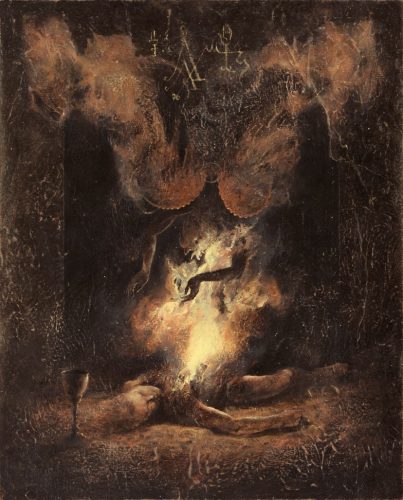
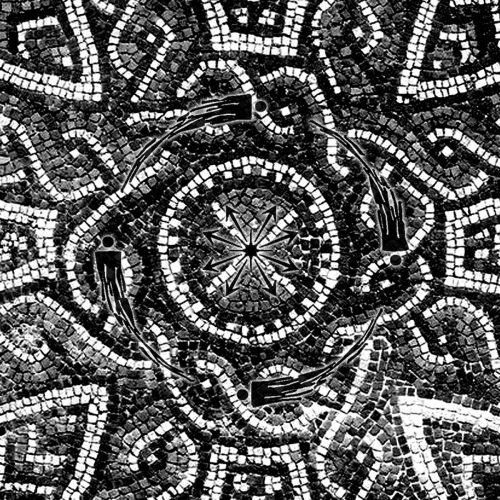
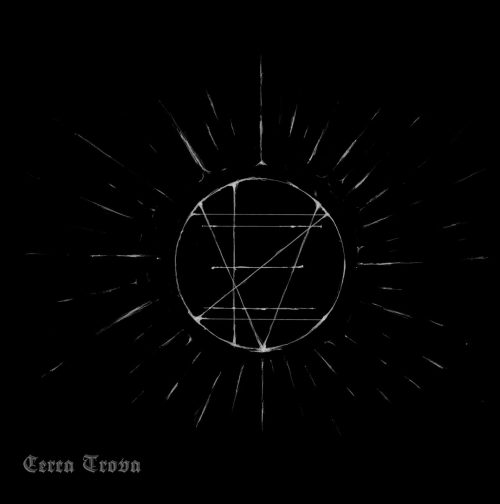
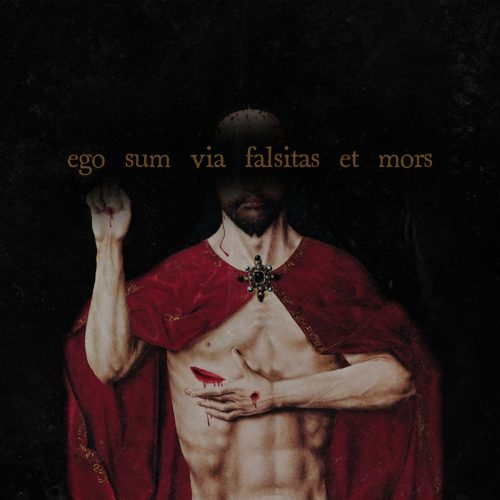
Well this is an interesting post, surprised there’s not more comments?
I don’t know what else I have to add, but would concur that mysticism is a far more prominent theme in metal than most other genres around today; possibly out-and-out religious music would be the only exception I think.
The song that struck me as the most mystic of recent years was Schammasch’s Metanoia.. in fact really anything Schammasch is quite heavily soaked in mysticism.
I certainly have no problem with Christian-influenced or inspired mysticism in heavy music. I remember coming across this video (I have no idea where or how) and loving the spookiness of the psalm, even though I have nothing in common with the religion: https://youtu.be/Xq3UX8yIBZI
I recall from some readings I did into Joseph Campbell years ago, he said something like mysticism was a kind of shared experience across religions, which transcends the religion. It was related to his idea of “the masks of god”; where religions are like masks which provide a surface layer on top of something indescribable, and the religion is supposed to be the path that leads to the underlying experience, but can never replace it – leading a horse to water, as such.
Thanks for thinking about this, and for the great reference to Campbell. I was expecting (and hoping for) more comments myself, but yours goes a long way.
No worries, sorry I didn’t get here to comment earlier. Life has been treating me like a rag doll; I suspect god is actually like a sadistic little slow loris playing with it’s food, nasty little fuckers. But with the day off sick work due to flu, what better to do that catch up on NCS… I’m not sure if my headache is getting better or getting drowned out, but it’s working
Hey, Islander! Composer from Autger here. Thanks for you text. «Eucharistia, Praedestinatio Gemina» is actually ambivalent, it is gaining from Catholicism in the sense of Deathspell Omega (deviations of Christian culture). I mean this: https://www.discogs.com/ru/master/22965-Various-Crushing-The-Holy-Trinity I worked in the ideological vein of DSO back then, just with more classical/exquisite approach. Trickster approach. You can add it to review (of you want to).
Mysticism in black metal seems to come with a specific style–the complex discordant type of compositions made famous by Deathspell Omega. I would add Nightbringer and Voidcraeft to that list. The latter band’s lyrics even draw inspriration from the bible and are written like prayers, though i cant tell to what end.
Upon further review, Voidcraeft is more like anti-mysticism! They focus on the meaninglessness of human existence, but use the bible for (negative) inspiration.
I think drone metal is worth mentioning, and for me black, death, and doom music with harsh vox or growls is pleasing to me and gives me comfort, and in a sense ‘evil’ music is like a cry against the real evil that exists in the world